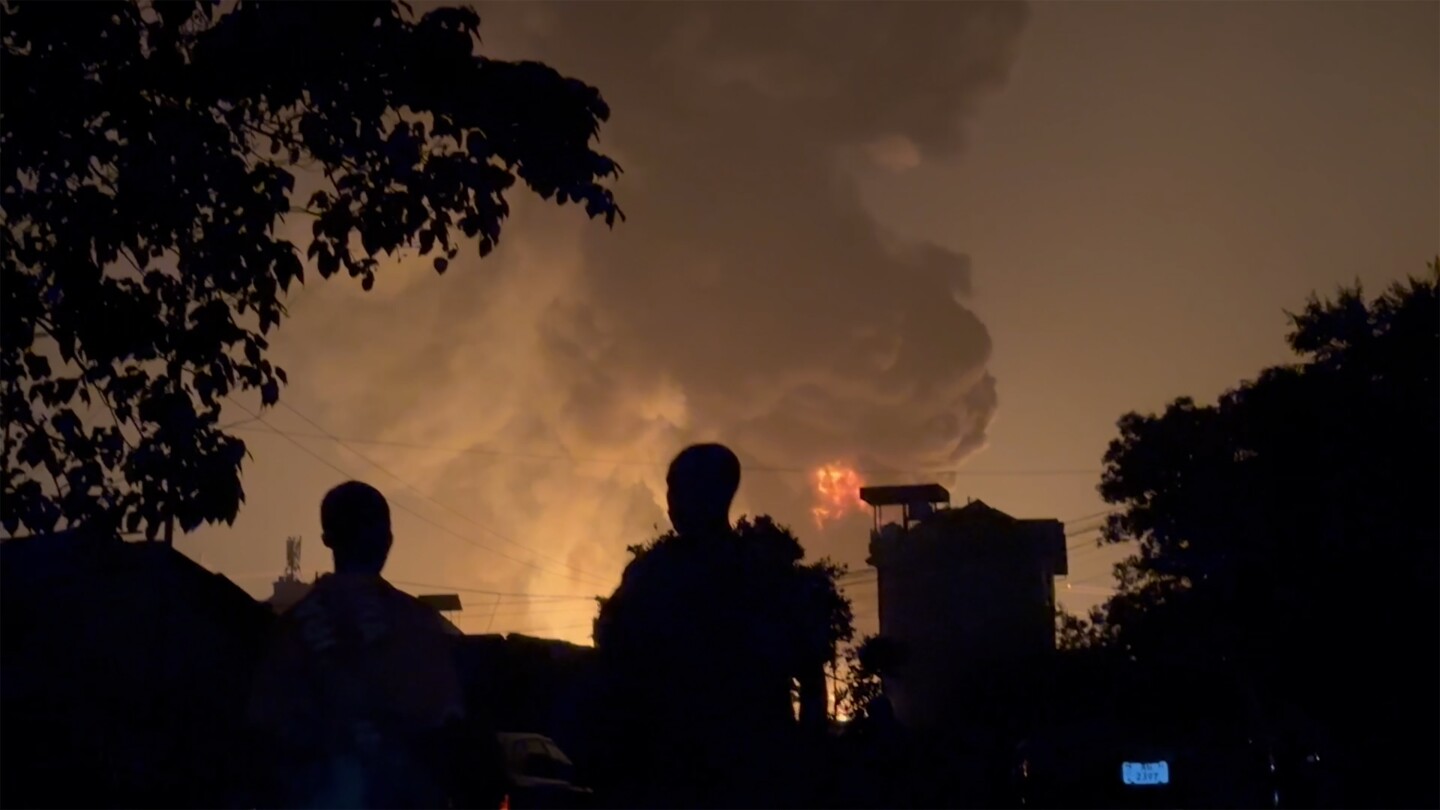CONAKRY, Guinea (AP) — Residents in Guinea’s capital on Tuesday woke up to rising costs of transportation after authorities closed gas stations as a major explosion and ensuing fire left several dead, hundreds injured and could now disrupt the supply of gas across the West African nation.
At least 14 people were killed, 178 injured and hundreds displaced by Monday’s blaze that followed an explosion at the country’s main fuel depot in the capital, Conakry, ripping through structures mostly in the Coronthie area that is home to some of the country’s poorest households.
The fire was contained nearly 24 hours after it started and other West African countries, including Senegal and Mali, sent teams to assist as authorities investigate the cause of the explosion.
Guinea relies on imported petroleum products, most of which are distributed from the destroyed depot, leading to fears of panic buying of the commodity. Authorities have closed most public places and halted operations of all gas stations and tankers while temporary shelters were provided for hundreds of people.
Hadja Diariou Diallo, who lived near the destroyed depot of the Guinean Petroleum Company, was forced to flee to safety in the suburbs of Conakry, but that meant leaving everything she had built behind, including the food business that sustained her family of 13.
“That place was my source of income,” Diallo said of the depot. “I passed by there every morning, sold the porridge and went to buy condiments to prepare (food) for my children. Now, I wonder how I am going to feed them,” she added.
Even fleeing comes at a great cost. Diallo says she ended up paying six times more than what she usually paid for a journey to the suburbs after the transport cost jumped to $32, from the $5 she regularly paid.
“A good part of my small savings has gone into transport,” she said.
Although the government alerted residents that “the electricity supply may potentially be affected by outages,” homes and facilities were still powered as the national power distribution company was still running on its fuel stock.
Across the capital, many residents offered to help in various ways: Some offered relief items for those displaced while others volunteered their vehicles to help transport valuables or offered accommodation to the displaced.
However, the gas shortages were already impacting the public transport system, which is heavily relied upon in the country.
“I wanted to go to Kaloum to see the state of my shop … but the taxi who used to charge me 10,000 Guinean Franc ($10.8) to reach Kaloum told me to pay 50,000 Guinean Franc ($54),” said Nouhan Touré, a 45-year-old trader. “I chose to stay at home and give the amount to my wife to go to the market,” he added.
____
Follow AP’s Africa coverage at: https://apnews.com/hub/africa

